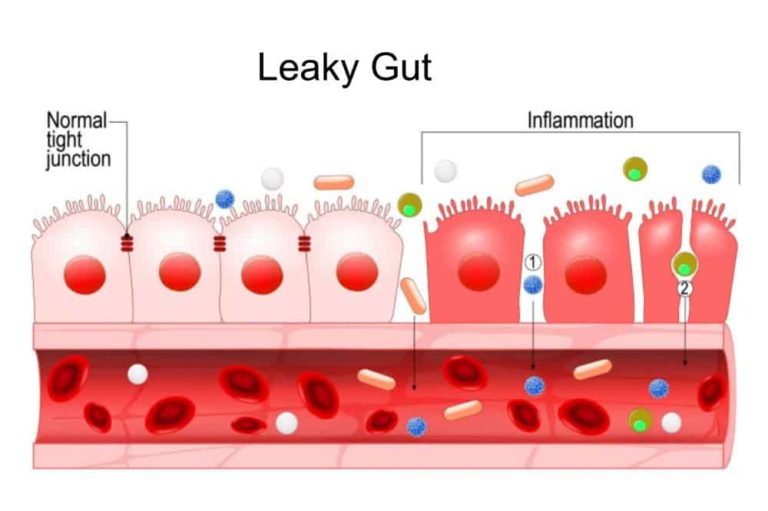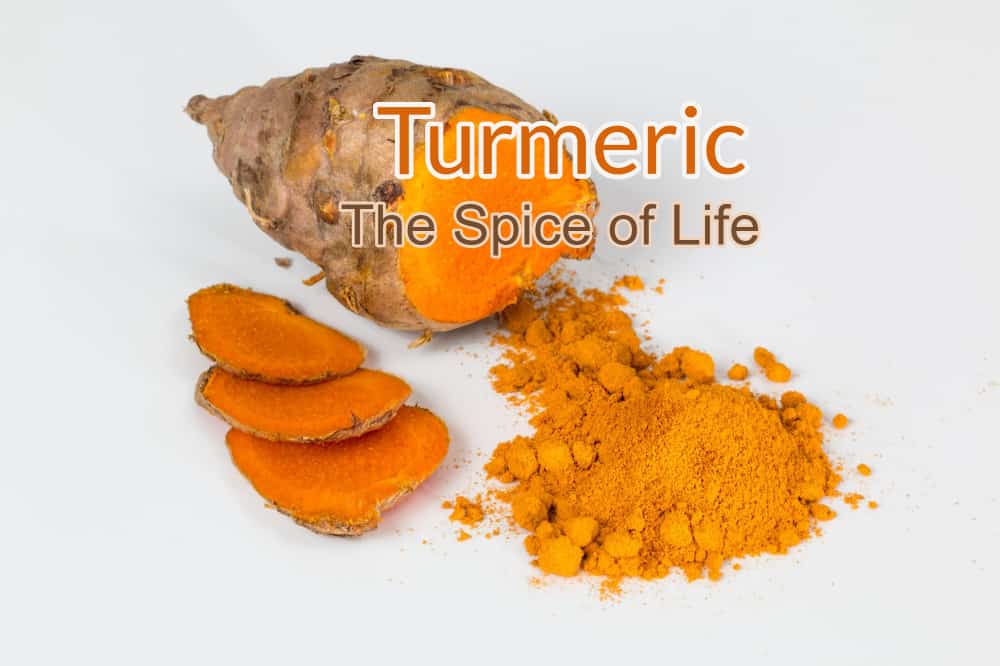Are you struggling with one or more of the following symptoms?
- Brain fog
- Digestive concerns such as bloating, constipation, diarrhoea and gas
- Mood imbalance such as anxiety and depression
- Hormonal imbalance such as PCOS (Polycystic Ovarian Syndrome), PMS (Premenstrual syndrome) or irregular periods
- Chronic fatigue
- Skin concerns such as eczema, acne or dermatitis
- Food sensitivities or allergies
- Have you had a diagnosis of an autoimmune disease?
You may have a leaky gut (intestinal hyperpermeability)
During recent years there has been valuable and extensive discoveries about the structure and function of the gut. A healthy gut digests and absorbs our food and nutrients. It acts as a barrier between what is going on in your gut to the rest of your body.
In an adult, our small intestine is a long tube that is roughly 6 metres long and is covered by a single layer of cells. These cells form a formidable barrier that consists of tight junctions, composed of intestinal cells and smaller subunits anchored together in the intestinal wall.
When your gut becomes leaky, these tight junctions open and larger molecules that should have stayed in the gut pass through into your blood stream. These larger molecules which can be from food, toxins or bacteria/yeast, are foreign to your immune system and causes an immune reaction which can appear in any of the symptoms or signs I mentioned above. It is this immune reaction that can in some people trigger an autoimmune disease.
What causes leaky gut?
The biggest factors are:
Physical and emotional stress
Mounting evidence suggests that psychological stress affects gut function. Chemicals that we release when we are stressed, such as adrenalin and cortisol, have a key effect on the release of inflammatory cells from our gut mucosa. When our stress is chronic our immune system becomes altered by the continual high cortisol levels leading to compromised digestion and absorption of foods and nutrients. This also leads to an irritated and inflamed mucosal lining.
A journal, “The microbiome: A Key Regulator of Stress and Neuroinflammation”, written in 2016 by Rea K, Dinan et al, shows that certain probiotics and the prebiotic galactooligosaccharide are effective in boosting the resilience to stress and improved emotional responses in people.
A 2019 systematic review found that more than half of 21 studies (1,503 individuals) concluded it was effective to treat anxiety symptoms by regulating the intestinal microbiota. These studies again make us realise how important it is to look after our gut health and our microbiome.
Foods, especially gluten, dairy and other inflammatory foods
Gluten induces the release of zonulin, which is a molecule that regulates the permeability of our intestinal wall. This leads to an opening of these tight junctions between the cells of our intestinal wall. Under normal circumstances, if we have a healthy, resilient immune system, these tight junctions can close again after a few minutes. However, these tight junctions can remain open when our immune system is depleted. The following factors are associated with the leaky gut due to a depleted immune system:
- If there is a genetic susceptibility to gluten sensitivity
- Over consumption of gluten
- Bacterial/yeast/parasite infection
- Unhealthy lifestyle such as an increase in alcohol, processed food consumption, sugar and dairy
- Lack of exercise
- Increased stress
All these factors lead to these tight junctions staying open for longer periods of time or they are unable to recover.
Other food allergens, such as dairy, corn and soy, can cause inflammation of the intestinal mucous lining by making it more vulnerable to becoming permeable.
Infections such as Candida, bacterial infections or parasites
Candida overgrowth or bacterial/parasite infection in the gut may play a role in causing inflammation and weakening of intestinal wall. This can promote permeability and leakage of larger molecules and toxins from these pathogens into the blood stream. Pathogens in the gut also lead to the following health issues:
- An imbalance in our microbiome leading to a reduced immune system
- Vulnerable digestive system to an increase growth of other opportunistic pathogens
- Interference with nutritional absorption
- Development of chronic disease such as autoimmune disorders, diabetes, obesity, autism and emotional imbalance.
- Chronic fatigue
Toxins/chemicals such as BPA, pesticides and mediations
Exposure to chemicals such as BPA (Bisphenol A) found especially in plastics can harm the mucous lining of the intestine as well as disrupt the microbial balance. A very recent study done in 2017 that was published in the “Frontiers in Cellular and Infection Microbiology” journal says that “Exposure to such chemicals can lead to widespread host effects and also simultaneously target commensal bacteria contained within the gut and possibly other organs.
The chemical-induced destruction of the gut flora may open up a Pandora’s box leading to disruptions in several host systems, including the central nervous system (CNS) through the gut-microbiome-brain axis (Collins and Bercik, 2009; Rhee et al., 2009; Cryan and Dinan, 2012).” The same study shows that the chemical Bisphenol A can lead to metabolic disorders and obesity, as it can alter our sugar metabolism hormone insulin.
Now that we know what can cause leaky gut and what to look out for, can it be resolved, and how?
Leaky gut can be repaired by following the trusted and successful steps of the 5R approach:
Remove
Remove all inflammatory foods that can damage your gut such as gluten, dairy, corn, soy, and eggs, as well as toxic foods such as sugar, caffeine, and alcohol. It is also necessary to determine if there is a gut infection such as Candida overgrowth, SIBO or other bacteral/parasite infections. Chemicals such as Bisphenol A ( BPA) by and other chemicals need to be avoided by eliminating plastic use and excess use of packaged and processed foods.
Everyone has a unique biochemistry so it may be necessary to do a food sensitivity (IgA and IgG) test to determine if there are any other foods that you are sensitive to that can contribute to inflammation of the gut. Click here to view a sample '96 General Food Panel: IgA/IgG‘ report
Another test that can be helpful is a comprehensive digestive stool analysis which will help determine if there are any parasite, bacterial or yeast infection as well as show the status of your good bacteria. Some of the comprehensive stool tests, such as the Microbiome mapping test, will also look at leaky gut factors such as zonulin, as well as other inflammatory, digestive and immune markers. Click here to view sample ‘COMPLETE MICROBIOME MAPPING' report
Replace
After removing the offenders, replace with good digestive support such as digestive enzymes and hydrochloric acid. Digestive enzymes will help support optimal digestion and nutrient absorption, as well as assist your body’s intestinal repair and inflammation responses. If there is a possibility of low stomach acid (which is becoming more common) hydrochloride may be needed to support the balance of your stomach acidity. The stomach needs to be acidic to protect against bacterial infection and stimulate the release of digestive enzymes.
Reinoculate
Restore the beneficial bacteria in your gut with high-quality, high-potency probiotics to re-establish a healthy microbiome.
Repair
Provide your gut with the essential nutrients it needs to repair itself such as glutamine, aloe, licorice, slippery elm and collagen. These ingredients will help restore the mucous lining by nourishing and soothing it.
Rebalance
Other important factors to consider when going through the process of recovering your gut:
- Stress management – incorporate mindfulness and meditation in your daily routine, as well as other stress management techniques.
- Exercise – develop a sustainable exercise routine. Exercise has so many benefits as we know but it also helps support your gut microbiome
- Sleep – get good quality 7-9 hours sleep a night. Read my blog post about Sleep Hygiene for more advice.
Make an appointment with me for a thorough discussion to determine what your underlying causes are to a leaky gut and what steps we need to take. The treatment plan will consist of possible further investigation, elimination diet, lifestyle advice and nutritional and herbal medicines to help restore and recover your gut. The comprehensive symptom picture I gather during our consult will help me to determine what course of action I need to take to help you reach optimal health.
References
Rea K, Dinan TG, Cryan JF. The microbiome: a key regulator of stress and neuroinflammation. Neurobiol Stress. 2016;4:23-33.
Yang B, Wei J, Ju P, Chen J. Effects of regulating intestinal microbiota on anxiety symptoms: a systematic review. Gen Psychiatr. 2019;32(2):e100056.
Cheryl S. Rosenfield. Gut Dysbiosis in Animals Due to Environmental Chemical Exposures. Frontiers in Cellular and Infection Microbiology. Published online 2017 Sep 8.
Miguel A. Toro-Londono,1 Katherine Bedoya-Urrego,1,2 Gisela M. Garcia-Montoya,2 Ana L. Galvan-Diaz,3 and Juan F. Alzate. Intestinal parasitic infection alters bacterial gut microbiota in children. PeerJ. Published online 2019 Jan 7.
Perrier C1, Corthésy B. Gut permeability and food allergies. Clin Exp Allergy. 2011 Jan






